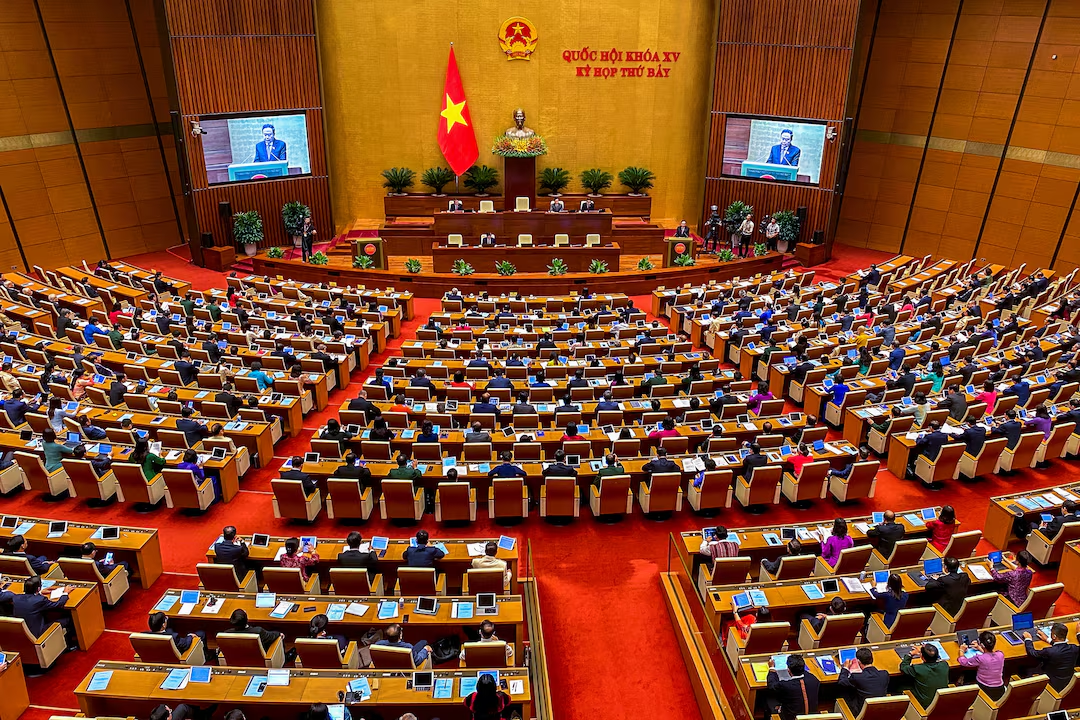Vietnam stands at a pivotal crossroads. With an astonishing 6.93% GDP growth in the first quarter of 2025, the nation is hailed as Southeast Asia"s economic miracle. Yet, beneath this glittering exterior lies a stark reality: the new leadership, under To Lam, is sounding alarm bells about the sustainability of this growth. As reported by Vietnam"s National Statistics Office, this unprecedented growth rate cannot mask the urgent need for reform.
Radical Reforms to Liberate Economic Forces
To Lam, who ascended from the head of Vietnam"s feared security services to become the general secretary of the Communist Party, is calling for a revolutionary overhaul of the economic system. He warns that “time does not wait for us,” urging immediate action to liberate productive forces. This rhetoric aligns with the country"s reliance on an export-driven economy, which has accounted for over 60% of GDP since 2012, as highlighted by Air University. But is this radical shift a strategic necessity or a desperate maneuver?
Corruption and Accountability as Economic Threats
To Lam"s anti-corruption campaign has already led to the dismissal of numerous civil servants. This initiative is not merely a populist move; it reflects the systemic issues that threaten the very foundation of Vietnam"s economic success. Corruption and lack of accountability stifle innovation and investment, two key drivers of sustainable growth. The urgency of these reforms is underscored by increasing scrutiny from international partners, especially as Vietnam navigates complex relations with both the United States and China.
Workers Left Behind in the Economic Boom
While the economic figures are optimistic, they mask a troubling reality for the working class. As industries expand, so does the wealth gap. The benefits of economic growth are not equally distributed, leaving workers, particularly in manufacturing, vulnerable and underpaid. According to reports from Vietnam"s National Statistics Office, industrial production has surged by 8.8% in early 2025, yet this boom has not translated into better wages or working conditions for laborers. The disparity raises a crucial question: who truly benefits from this growth?

Vietnam parliament approves plan for leaner government | Reuters
The Environmental Cost of Economic Expansion
As the Vietnamese economy pushes forward, environmental concerns are increasingly sidelined. The drive for industrial growth often comes at the expense of natural resources and ecological balance. This is especially poignant in a country vulnerable to climate change, where agricultural sectors are being undermined by rapid industrialization. As reported in various studies, Vietnam"s push for growth must reconcile with sustainable practices to avoid catastrophic environmental fallout.
Global Economic Shifts and Vietnam"s Future
The geopolitical landscape is shifting, with Vietnam caught in the crosshairs of U.S.-China tensions. As The New York Times highlights, Vietnam"s leadership is seeking new alliances while trying to maintain economic stability. However, this strategy could expose the nation to external pressures that may compromise its sovereignty and economic autonomy. In this context, the call for radical reform by To Lam may not only be a domestic necessity but a strategic maneuver to bolster Vietnam"s position on the world stage.
As we witness Vietnam"s economic transformation, the stakes are high. The challenge is not merely to sustain growth, but to ensure that it is inclusive, equitable, and sustainable. The journey ahead will require bold actions, genuine accountability, and a commitment to lifting up all segments of society, especially those who have been historically marginalized in the economic narrative.







![[Video] Gunfire between Iraqi security forces and Sadr militias in Baghdad](/_next/image?url=%2Fapi%2Fimage%2Fthumbnails%2Fthumbnail-1768343508874-4redb-thumbnail.jpg&w=3840&q=75)
